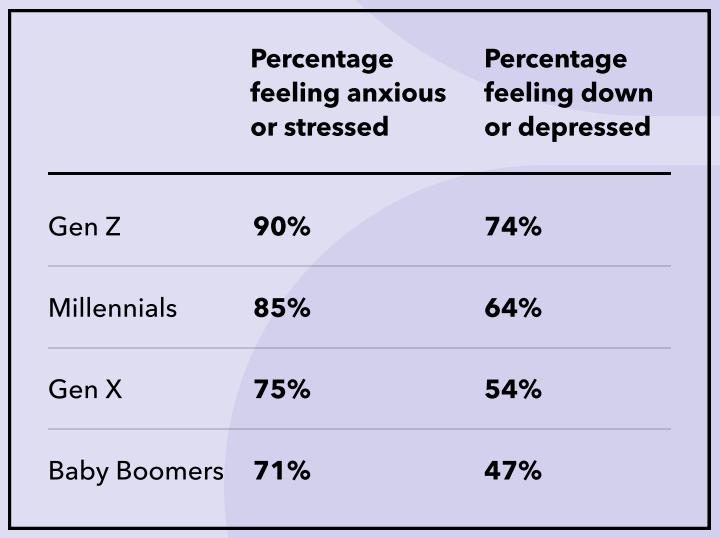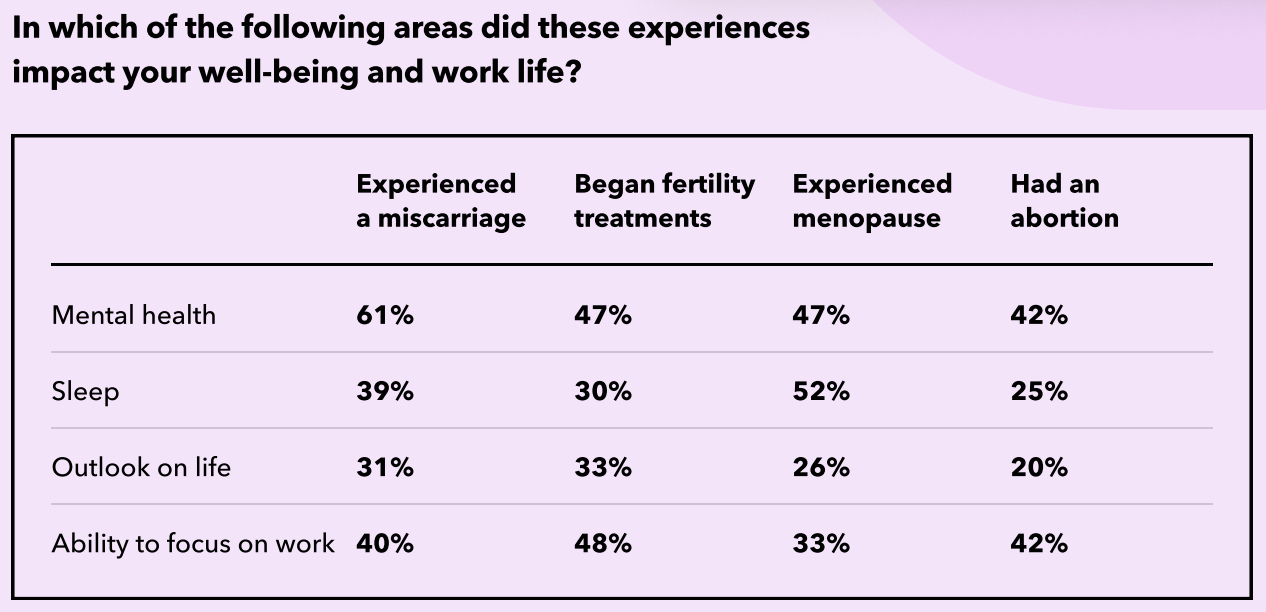
Employers 'need to pay special attention' to supporting mental health of Gen Z, says report

Nearly seven in 10 employees say that their mental health stayed the same or worsened in the past year, with Gen Z employees most likely to be depressed or stressed.
By generation, Gen Z respondents emerged as the most stressed and anxious generation (90%) and are most likely to feel down or depressed (74%), found a survey by software firm Calm.com.
The report attributed the situation to Gen Zs coming of age during a global pandemic and a technology-saturated world.
"Employers will need to pay special attention to supporting the mental health of both Gen Z employees and Gen Z dependants of older employees, especially teens," the report read.
 Source: Calm's Voice of the Workplace Report
Source: Calm's Voice of the Workplace Report
By gender, there were more women who said they were struggling with their mental health than men, found the report, based on based on survey research of 4,000+ employees around the world and 150+ US HR/benefits leaders. .
According to the report, experiencing a miscarriage had the biggest impact on women's well-being and work life, followed by menopause and fertility treatments.
 Source: Calm's Voice of the Workplace Report
Source: Calm's Voice of the Workplace Report
"With people choosing to work longer, menopause is emerging as a major challenge for female employees, and they're not likely to be supported in discussing it," the report read.
The report, however, recognised that 25% of employers are supportive of employees' menopause needs, with more including the issue on their top five areas of benefits focus in the next two years.
Meanwhile, the report also discovered that financial woes are the top stressors for employees, with the issue being the cause of the following:
Employers appear to be aware of this problem, with 66% agreeing that financial stress impact mental health and 41% recognising it affects employees' ability to focus on work.
In response, 77% said they want to address employees' financial anxiety in the next one to two years, according to the report.
Other issues negatively impact employee mental health include being overworked, health concerns, state of the world, physical appearance, loneliness, career uncertainty, among others.
The report also discovered the impact of technology and having a good manager to mental health.
It found that technology is blurring work-life balance and is contributing to stress and burnout, with employees reporting the following experiences:
Managers can also have an impact on employees' wellbeing, with one-third of the respondents saying they wish their managers would:
HR leaders across the world have made big changes to how workplaces address mental health, according to the report, noting that they have laid a "strong foundation" for employee mental health through various efforts.
To further build on that foundation, the report suggested the following steps: